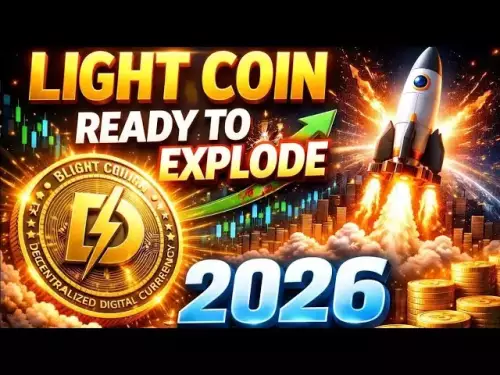 |
|
 |
|
 |
|
 |
|
 |
|
 |
|
 |
|
 |
|
 |
|
 |
|
 |
|
 |
|
 |
|
 |
|
 |
|
Articles d’actualité sur les crypto-monnaies
Interoperability is the key to unlocking the potential of Web3 gaming
May 01, 2025 at 12:57 am

Web3 gaming is defined by blockchain and decentralization, allowing players to own digital assets and interact directly with the game economy. This approach transforms the video game industry by offering more transparency and control to users. Interoperability plays a key role in this ecosystem, enabling players to use their virtual items across multiple compatible games. This innovation promotes continuity of experiences and enhances the value of digital assets. This article explores the importance of interoperability in Web3 gaming, analyzing its benefits for players, its technical challenges, and the hurdles developers must overcome to make it more accessible.
Understanding Interoperability in Web3 Gaming
Interoperability transforms the video game industry by allowing players to use their digital assets across multiple platforms. It relies on specific technologies that ensure compatibility between different ecosystems.
Definition and basic principles
Interoperability refers to the ability of Web3 games to share digital assets across multiple environments. In traditional games, items and currencies remain confined to a single title. For example, a skin purchased in Fortnite cannot be used in League of Legends, even if both games are developed by Epic Games.
Blockchain eliminates this limitation by making assets accessible across compatible games. For instance, an NFT of an in-game item in Illuvium can be used in another game integrated with the Immutable X ecosystem.
Two forms of interoperability exist. Partial interoperability allows using the same asset in several games within the same ecosystem, but with limitations. For instance, an item purchased on The Sandbox cannot be used in Decentraland despite both platforms being compatible.
Total interoperability ensures full compatibility between different platforms and game engines, enabling seamless integration of assets and characters. This second approach promotes a more open and flexible digital economy.
Technology in the service of interoperability
Several technologies facilitate interoperability in Web3 gaming. They ensure the management, transfer, and use of digital assets across different games.
* Blockchain standards define the rules that allow games to exchange digital assets. The ERC-721 standard ensures the uniqueness of NFTs, guaranteeing that each in-game item has its own characteristics. The ERC-1155 allows managing both NFTs and fungible tokens within the same smart contract. These protocols promote compatibility between different games and platforms.
* Smart contracts automate exchanges between games by executing rules programmed on the blockchain. When a player transfers an item from one game to another, the smart contract verifies the asset's validity and updates its status in the new environment. This automation removes intermediaries and strengthens the transactions' security.
* Blockchain oracles play a role in integrating external data. They allow games to access information from other ecosystems to synchronize digital assets. For example, an oracle can transmit an in-game item's history between different blockchains to ensure data continuity.
Interoperability thus relies on a set of technologies that ensure the fluidity of exchanges between Web3 games. These advancements pave the way for a new generation of connected and evolving games.
The advantages of interoperability in Web3 Gaming
Interoperability brings numerous benefits to players. It enhances the ownership of digital assets, improves the gaming experience, and promotes a more dynamic economy.
Ownership and control of digital assets
Web3 gaming allows players to truly own their in-game items. In traditional games, assets are fully controlled by the studios. Players cannot transfer or sell them freely. Studio-imposed limitations prevent cross-game integration of items or characters.
This limitation is due to the technical architecture of Web2 games. Each title has its own closed ecosystem, making interoperability difficult. For example, a skin purchased in Fortnite cannot be used in League of Legends, even if both games are developed by Epic Games.
Blockchain changes this situation by recording each item as an NFT on a public and decentralized ledger. This technology ensures the persistence and traceability of digital assets, even if the game they belong to disappears.
With this approach, players gain freedom. They can exchange, resell, or use their digital assets on different compatible platforms. This autonomy reduces dependence on studios and ensures better longevity for virtual items.
Even if a game closes, players retain their assets and can use them in another compatible game. This interoperability is made possible by blockchain standards adopted by different platforms.
For instance, games using the Immutable X layer 2 solution can easily exchange NFTs and integrate them into their respective ecosystems. This continuity is crucial for maintaining a vibrant and lasting virtual economy.
Improvement of the gaming experience
Interoperability transforms the way players interact with their avatars and in-game items. It allows them to use the same skins, weapons, or equipment in multiple compatible games.
This continuity enhances immersion and values the purchases made. If a player spends time and resources to acquire a rare item in one game, they can continue using it in another title.
The progression of players also becomes more fluid. A player who unlocks a skill or
Clause de non-responsabilité:info@kdj.com
Les informations fournies ne constituent pas des conseils commerciaux. kdj.com n’assume aucune responsabilité pour les investissements effectués sur la base des informations fournies dans cet article. Les crypto-monnaies sont très volatiles et il est fortement recommandé d’investir avec prudence après une recherche approfondie!
Si vous pensez que le contenu utilisé sur ce site Web porte atteinte à vos droits d’auteur, veuillez nous contacter immédiatement (info@kdj.com) et nous le supprimerons dans les plus brefs délais.
-

- Super Bowl LX : les tendances du tirage au sort pointent vers pile malgré la récente poussée de face
- Jan 31, 2026 at 06:05 am
- À l'approche du Super Bowl LX, les tendances des paris et les données historiques sur le tirage au sort offrent des informations intrigantes aux fans et aux parieurs. Pile a un avantage historique, mais Pile montre un élan récent.
-

- Découverte ancienne d'un prospecteur australien : des reliques japonaises font surface et réécrivent l'histoire de la ruée vers l'or
- Jan 31, 2026 at 06:00 am
- En Australie, la découverte ancienne d'un prospecteur, une relique japonaise, bouleverse l'histoire de la ruée vers l'or, faisant allusion à des histoires inédites et à d'autres trésors cachés.
-

- La Monnaie américaine ajuste les prix des pièces : les ensembles de collection vêtus connaissent des hausses significatives au milieu des sorties spéciales anniversaire
- Jan 31, 2026 at 05:43 am
- La Monnaie des États-Unis a récemment revu à la baisse le prix de ses produits de collection habillés, avec des augmentations significatives affectant les jeux d'épreuves, les jeux de pièces de monnaie et les rouleaux de pièces de monnaie et de dollars. Cela survient alors que les collectionneurs attendent des créations uniques pour le 250e anniversaire du pays.
-

- THORChain déclenche un débat enflammé avec CoinGecko sur les définitions Bitcoin DEX : une bataille pour une véritable décentralisation
- Jan 31, 2026 at 05:18 am
- THORChain remet en question le classement Bitcoin DEX de CoinGecko, déclenchant un débat crucial sur ce que « décentralisé » signifie réellement pour les swaps BTC natifs et l'avenir des données Bitcoin DeFi.
-

- Fantasy Football Frenzy : choix clés et indicateurs pour la 24e journée de Premier League
- Jan 31, 2026 at 04:42 am
- La 24e journée de Premier League apporte des décisions difficiles aux managers de Fantasy Football. Nous décomposons les joueurs incontournables et ceux à éviter, au milieu de batailles cruciales en championnat.
-

- Les crypto-monnaies se préparent à une chute potentielle en 2026 dans un contexte de volatilité du marché
- Jan 31, 2026 at 04:15 am
- L'analyse d'articles récents suggère un ralentissement potentiel pour les crypto-monnaies, en particulier le XRP et le Dogecoin, d'ici 2026 en raison des pressions du marché et des préoccupations liées aux services publics.
-

- Coinbase et Crypto ISAC Forge Alliance, établissant de nouvelles normes en matière de renseignement de sécurité dans le monde des actifs numériques
- Jan 31, 2026 at 01:57 am
- Le nouveau partenariat de Coinbase avec Crypto ISAC marque un moment charnière pour la cybersécurité collective, améliorant le partage de renseignements sur les menaces afin de renforcer l'écosystème des actifs numériques contre les cybermenaces de plus en plus sophistiquées.
-

-

- Bitcoin atteint 83 000 $ au milieu d'une frénésie de vente sans risque, les ETF connaissent des sorties importantes
- Jan 31, 2026 at 01:17 am
- Bitcoin oscille autour de 83 000 $ alors que le sentiment d’aversion au risque déclenche des ventes importantes, les ETF connaissant des sorties importantes et des liquidations croissantes.






























































